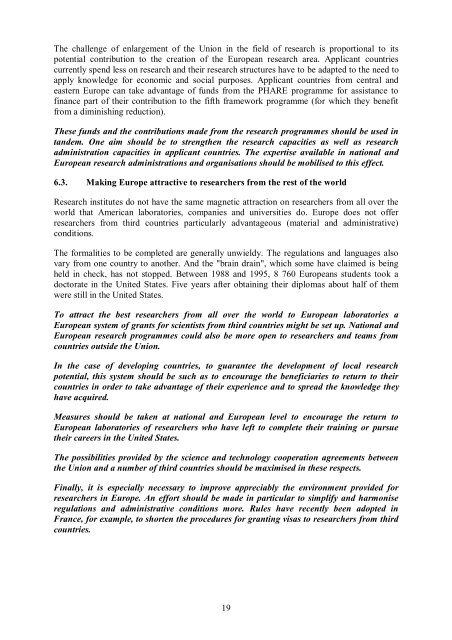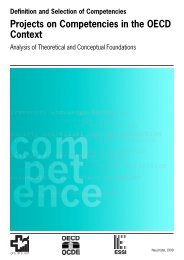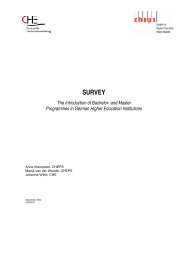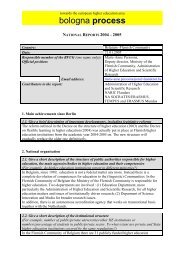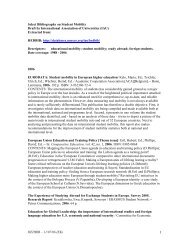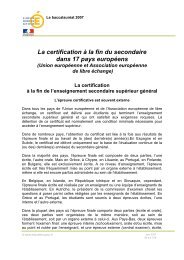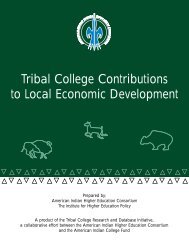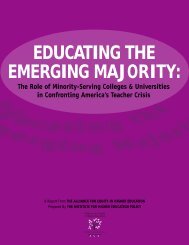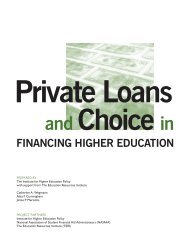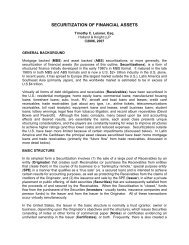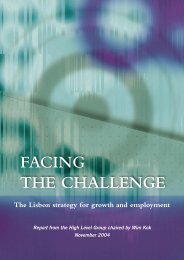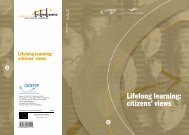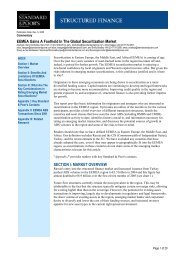(2000) 6 - EUR-Lex
(2000) 6 - EUR-Lex
(2000) 6 - EUR-Lex
You also want an ePaper? Increase the reach of your titles
YUMPU automatically turns print PDFs into web optimized ePapers that Google loves.
The challenge of enlargement of the Union in the field of research is proportional to itspotential contribution to the creation of the European research area. Applicant countriescurrently spend less on research and their research structures have to be adapted to the need toapply knowledge for economic and social purposes. Applicant countries from central andeastern Europe can take advantage of funds from the PHARE programme for assistance tofinance part of their contribution to the fifth framework programme (for which they benefitfrom a diminishing reduction).These funds and the contributions made from the research programmes should be used intandem. One aim should be to strengthen the research capacities as well as researchadministration capacities in applicant countries. The expertise available in national andEuropean research administrations and organisations should be mobilised to this effect.6.3. Making Europe attractive to researchers from the rest of the worldResearch institutes do not have the same magnetic attraction on researchers from all over theworld that American laboratories, companies and universities do. Europe does not offerresearchers from third countries particularly advantageous (material and administrative)conditions.The formalities to be completed are generally unwieldy. The regulations and languages alsovary from one country to another. And the "brain drain", which some have claimed is beingheld in check, has not stopped. Between 1988 and 1995, 8 760 Europeans students took adoctorate in the United States. Five years after obtaining their diplomas about half of themwere still in the United States.To attract the best researchers from all over the world to European laboratories aEuropean system of grants for scientists from third countries might be set up. National andEuropean research programmes could also be more open to researchers and teams fromcountries outside the Union.In the case of developing countries, to guarantee the development of local researchpotential, this system should be such as to encourage the beneficiaries to return to theircountries in order to take advantage of their experience and to spread the knowledge theyhave acquired.Measures should be taken at national and European level to encourage the return toEuropean laboratories of researchers who have left to complete their training or pursuetheir careers in the United States.The possibilities provided by the science and technology cooperation agreements betweenthe Union and a number of third countries should be maximised in these respects.Finally, it is especially necessary to improve appreciably the environment provided forresearchers in Europe. An effort should be made in particular to simplify and harmoniseregulations and administrative conditions more. Rules have recently been adopted inFrance, for example, to shorten the procedures for granting visas to researchers from thirdcountries.19


